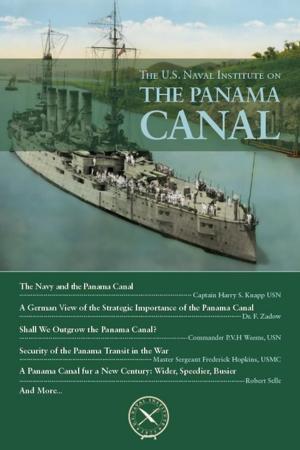| Author: | William Althoff | ISBN: | 9781612519012 |
| Publisher: | Naval Institute Press | Publication: | February 15, 2016 |
| Imprint: | Naval Institute Press | Language: | English |
| Author: | William Althoff |
| ISBN: | 9781612519012 |
| Publisher: | Naval Institute Press |
| Publication: | February 15, 2016 |
| Imprint: | Naval Institute Press |
| Language: | English |
Originally published in 1990, Sky Ships is easily the most comprehensive history of U.S. Navy airships ever written. The Naval Institute Press is releasing this new edition to commemorate the twenty-fifth anniversary of the book’s publication.
Impressed by Germany’s commercial and military Zeppelins, the United States initiated its own lighter-than-air (LTA) program in 1915. Naval Air Station Lakehurst (now Joint Base McGuire-Dix-Lakehurst) in New Jersey was homeport for several of the largest machines ever to navigate the air: rigid airships. An instrument of very-long-range (strategic) reconnaissance, the promise of the large airship was compelling; the Navy could hardly ignore it. In the commercial realm, success peaked in 1936 with transatlantic round trips between Central Europe and the Americas by Hindenburg and by Graf Zeppelin ending, however, with the infamous fire in May 1937. That setback, the onset of war and the accelerated progress of heavier-than-air (HTA) technology ended rigid airship development. The Navy Department persisted, modernizing and deploying the non-rigid type or blimp as an anti-submarine warfare (ASW) platform in the Second World War and, as well, for airborne early-warning (AEW) through the 1950s. Unlike carrier aviation and the hardware of a new” nuclear Navy, the program had yet to integrate into fleet forces and the naval-aviation organization. Concluding progressive cutbacks, all fleet airship commands were disestablished in 1961--a last flight logged at NAS Lakehurst on 31 August 1962.
This edition features over two hundred new photographs. Sky Ships presents more than two decades of archival and oral-history research, and it remains the most comprehensive volume on the subject.
Impressed by Germany’s commercial and military Zeppelins, the United States initiated its own lighter-than-air (LTA) program in 1915. Naval Air Station Lakehurst (now Joint Base McGuire-Dix-Lakehurst) in New Jersey was homeport for several of the largest machines ever to navigate the air: rigid airships. An instrument of very-long-range (strategic) reconnaissance, the promise of the large airship was compelling; the Navy could hardly ignore it. In the commercial realm, success peaked in 1936 with transatlantic round trips between Central Europe and the Americas by Hindenburg and by Graf Zeppelin ending, however, with the infamous fire in May 1937. That setback, the onset of war and the accelerated progress of heavier-than-air (HTA) technology ended rigid airship development. The Navy Department persisted, modernizing and deploying the non-rigid type or blimp as an anti-submarine warfare (ASW) platform in the Second World War and, as well, for airborne early-warning (AEW) through the 1950s. Unlike carrier aviation and the hardware of a new” nuclear Navy, the program had yet to integrate into fleet forces and the naval-aviation organization. Concluding progressive cutbacks, all fleet airship commands were disestablished in 1961--a last flight logged at NAS Lakehurst on 31 August 1962.
This edition features over two hundred new photographs. Sky Ships presents more than two decades of archival and oral-history research, and it remains the most comprehensive volume on the subject.
Originally published in 1990, Sky Ships is easily the most comprehensive history of U.S. Navy airships ever written. The Naval Institute Press is releasing this new edition to commemorate the twenty-fifth anniversary of the book’s publication.
Impressed by Germany’s commercial and military Zeppelins, the United States initiated its own lighter-than-air (LTA) program in 1915. Naval Air Station Lakehurst (now Joint Base McGuire-Dix-Lakehurst) in New Jersey was homeport for several of the largest machines ever to navigate the air: rigid airships. An instrument of very-long-range (strategic) reconnaissance, the promise of the large airship was compelling; the Navy could hardly ignore it. In the commercial realm, success peaked in 1936 with transatlantic round trips between Central Europe and the Americas by Hindenburg and by Graf Zeppelin ending, however, with the infamous fire in May 1937. That setback, the onset of war and the accelerated progress of heavier-than-air (HTA) technology ended rigid airship development. The Navy Department persisted, modernizing and deploying the non-rigid type or blimp as an anti-submarine warfare (ASW) platform in the Second World War and, as well, for airborne early-warning (AEW) through the 1950s. Unlike carrier aviation and the hardware of a new” nuclear Navy, the program had yet to integrate into fleet forces and the naval-aviation organization. Concluding progressive cutbacks, all fleet airship commands were disestablished in 1961--a last flight logged at NAS Lakehurst on 31 August 1962.
This edition features over two hundred new photographs. Sky Ships presents more than two decades of archival and oral-history research, and it remains the most comprehensive volume on the subject.
Impressed by Germany’s commercial and military Zeppelins, the United States initiated its own lighter-than-air (LTA) program in 1915. Naval Air Station Lakehurst (now Joint Base McGuire-Dix-Lakehurst) in New Jersey was homeport for several of the largest machines ever to navigate the air: rigid airships. An instrument of very-long-range (strategic) reconnaissance, the promise of the large airship was compelling; the Navy could hardly ignore it. In the commercial realm, success peaked in 1936 with transatlantic round trips between Central Europe and the Americas by Hindenburg and by Graf Zeppelin ending, however, with the infamous fire in May 1937. That setback, the onset of war and the accelerated progress of heavier-than-air (HTA) technology ended rigid airship development. The Navy Department persisted, modernizing and deploying the non-rigid type or blimp as an anti-submarine warfare (ASW) platform in the Second World War and, as well, for airborne early-warning (AEW) through the 1950s. Unlike carrier aviation and the hardware of a new” nuclear Navy, the program had yet to integrate into fleet forces and the naval-aviation organization. Concluding progressive cutbacks, all fleet airship commands were disestablished in 1961--a last flight logged at NAS Lakehurst on 31 August 1962.
This edition features over two hundred new photographs. Sky Ships presents more than two decades of archival and oral-history research, and it remains the most comprehensive volume on the subject.















